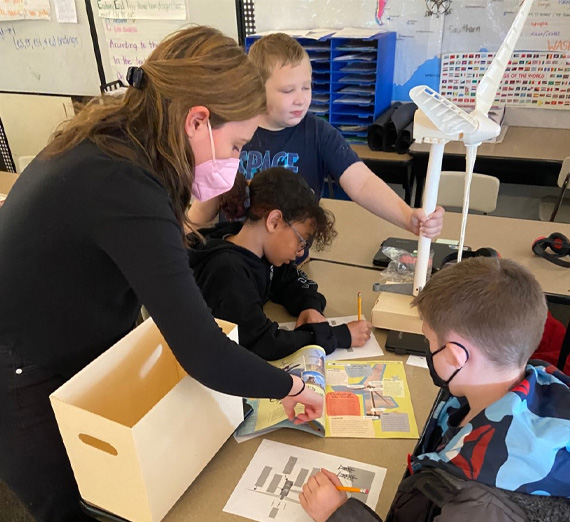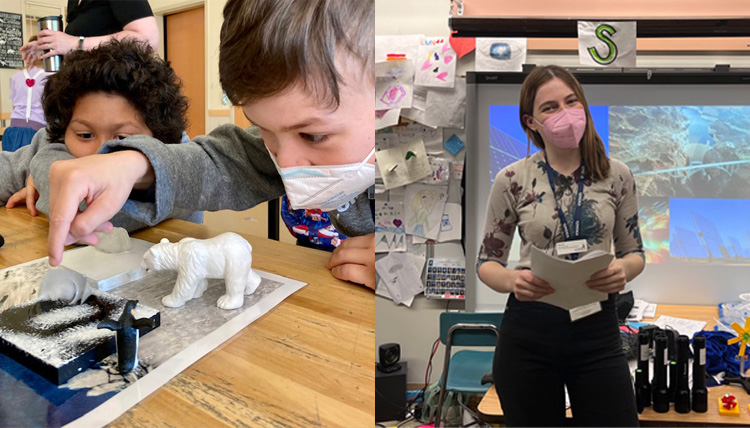Climate Center receives $100,000 EPA grant

SPOKANE, Wash. – Gonzaga University’s Center for Climate, Society and the Environment has received a $100,000 Environmental Education grant that will further its work with local and regional schools and assist five local organizations with their own environmental education efforts.
Gonzaga’s grant proposal was selected by the Environmental Protection Agency after a review of submissions from across Region 10, which covers Alaska, Idaho, Oregon and Washington.
“The Gonzaga Climate Center is proud to partner with the EPA and regional environmental nonprofits to help Spokane students understand and prepare for our changing climate,” said Brian G. Henning, the Gonzaga center’s director. “Young people are demanding better climate education and we have a duty to respond.”
Besides the work with teachers and students, the grant will provide $5,000 each to these five organizations: the West Valley Outdoor Learning Center; The Lands Council; Spokane Riverkeeper; Inland Northwest Land Conservancy; and the Dishman Hills Conservancy.
"We look forward to mentoring and working with a new generation of waterkeepers to focus on the developing challenges of climate change and our river,” said Jule Schultz, program lead for Spokane Riverkeeper. “The Salish School lends indigenous knowledge and perspective to issues we face on our river today."

Workshops For Teachers
In partnership with Northeast Washington Educational Service District 101, the grant will enable two climate literacy workshops for 50 middle school teachers. The sessions help educators understand and incorporate climate science with a focus on ways to help them make it local and keep it hopeful.
Emphasis is given to student voice, eco-anxiety and the power of student agency, Henning said. The workshops are held synchronously online to maximize flexibility and opportunity since the educational district serves seven northeastern counties, the state’s largest in terms of districts, counties and geographic regions.
The workshops are jointly developed and delivered by Gonzaga professors of education, environmental studies and biology. Besides Henning, who is a professor philosophy and environmental studies, these colleagues are involved: John Traynor, associate professor of teacher education, and Melinda Howard, biology lecturer.
Outreach to Classrooms
In partnership with Spokane Public Schools, the EPA grant will help expand the Climate Literacy Fellows program, which hires and trains Gonzaga undergraduates to deliver climate literacy activities in the classroom. Those are aligned with Next Generation Science Standards and feature hands-on exercises with kits that explore key science concepts related to wind and solar energy.
The funds will allow the hiring of four additional Fellows for the 2022-2023 academic year who will work in upper elementary and middle school classrooms, especially Title I partner schools with high rates of poverty. Collectively, they will visit at least 15 to 20 classrooms, each with 25 to 30 students, for an overall engagement of 375 to 600 students.

Other Local Education Efforts
Here’s what the five Spokane-area organizations will pursue with their share of the grant funds.
- West Valley Outdoor Learning Center will teach kindergarten to fifth-grade students about climate change and give students opportunities to learn about small things they can do to help with its effects. Lessons will match grade-level needs.
- The Lands Council will develop and teach a climate literacy curriculum for middle school and high school students during the 2022-2023 school year, focusing on under-represented and underprivileged schools in Spokane. Activities will be practical and hands-on and will include presentations, videos, demonstrations, group activities, guest lectures from professionals in the field, and service-learning field experiences.
- The Spokane Riverkeeper will lead students from the Salish School of Spokane on educational, water and aquatic ecosystem-related expeditions along the Spokane River and its tributaries. The school is a native-language school teaching primarily Indigenous youth but open to all students. Weekly field lessons will center on the health of our rivers and streams, in part helping to understand the effect of climate change on local waters and aquatic ecosystems.
- Inland Northwest Land Conservancy will host K-12 students from the Spokane area and adjacent rural Native American communities at the Waikiki Springs Nature Preserve to learn about climate-resilient landscape there. The preserve was created along the banks of the Little Spokane River in 2020 with education as a top goal.
- Dishman Hills Conservancy will support the Kids in the Hills program at the Dishman Hills Natural Area for fourth- through sixth-graders from about 10 Title I elementary schools. Class preparation, field study and followup include aquatic biology, forestry, wildlife habitat and geology, with attention to climate change effects.
Founded in 2021, the Gonzaga Center for Climate, Society and the Environment provides resources and opportunities to students, faculty, community members and leaders in the Inland Northwest to meet the challenges facing humanity and the natural environment in the 21st century.
